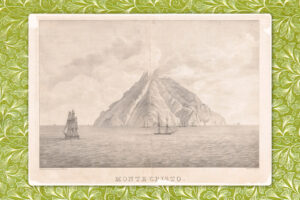Who is your Masculine Archetype?
Published on July 6, 2025

How timeless stories help us understand ourselves
Every great story, and the masculine archetypes, – from Homer’s Odyssey to Tolkien’s The Lord of the Rings – centers around a journey. Not just across oceans or mountains, but deep into the soul of man. Whether we’re talking about knights, poets, fathers, kings, or rebels, these stories repeat certain character types – archetypes – that reflect truths written into the heart of every man.
Psychologist Carl Jung proposed that there are recurring traits and tendencies in the human experience – archetypes – that help us understand ourselves and others. These have been popularized in personality tests like Myers-Briggs, but even before the 12 archetypes were formalized they were already present in stories we have carried through the ages.
These aren’t about fate or personality boxes. Instead, they are tools – reflections of what it means to live with purpose, to struggle with cultivating virtue, and to respond to the world with meaning.
So – what’s your masculine archetype? Here are 12 archetypes rooted in storytelling, history, and literature that can help you name the journey you’re on.
The Innocent
Trusting, sincere, and drawn to goodness.
He sees the world with wonder and believes in the simple joys of life, even in a fallen world. Is willing to give of himself – even to the end.
Examples: Samwise Gamgee (The Lord of the Rings), David Copperfield (David Copperfield), St. Francis of Assisi (historical)
The Hero
Courageous, determined, and self-sacrificing.
He confronts danger and overcomes obstacles for a noble cause – not for glory, but for justice.
Examples: Odysseus (The Odyssey), King Arthur (Arthurian Legends), Sir Gawain (Sir Gawain and the Green Knight)
The Ruler
Responsible, protective, and made for leadership.
He governs with vision and strength, using his authority to bring order, not control. Unafraid of self-sacrifice for those he loves.
Examples: Aragorn (The Lord of the Rings), Marcus Aurelius (Meditations), St. Thomas More (Historical, A Man for All Seasons)
The Sage
Wise, discerning, and in search of truth.
He values knowledge and contemplation, often serving as mentor, advisor, or moral compass.
Examples: Gandalf (The Lord of the Rings), Merlin (Arthurian Legends), Tiresias (Greek mythology)
The Explorer
Restless, adventurous, and drawn to discovery.
He craves new frontiers, whether physical or intellectual, and is rarely content with staying put.
Examples: Phileas Fogg (Around the World in Eighty Days), Bilbo Baggins (the Hobbit)
The Creator
Innovative, imaginative, and compelled to build or express.
He brings ideas to life – through art, invention, or vision – and finds joy in the act of creation.
Examples: Michelangelo (Historical), Geppetto (Pinocchio)
The Lover
Devoted, passionate, emotionally present.
He desires intimacy and connection – through romance, friendship, or spiritual love – and gives deeply of himself.
Examples: Dante (Historical, The Divine Comedy), Romeo (Romeo and Juliet), Sidney Carton (A Tale of Two Cities)
The Caregiver
Compassionate, selfless, and protective.
He finds strength in service and sacrifice, especially for family or community.
Examples: Atticus Finch (To Kill a Mockingbird), Jean Valjean (Les Misérables), George Bailey (It’s a Wonderful Life)
The Jester
Clever, joyful, and often truth-telling through humor.
He can disarm others with wit, but ultimately reminds the world not to take itself too seriously.
Examples: Tom Bombadil (The Lord of the Rings), Sancho Panza (Don Quixote), Fred and George Weasley (Harry Potter)
The Rebel
Challenging, fearless, and ready to disrupt for good.
He confronts broken systems and fights for reform, often walking alone.
Examples: Prometheus (mythology), Colonel Claus Von Stauffenberg (Historical, Valkyrie), William Wallace (Historical, Braveheart)
The Seeker
Idealistic, introspective, and spiritually searching.
He longs for purpose beyond what is visible, and he’s willing to wrestle with hard questions to find it.
Examples: Charles Ryder (Brideshead Revisited), St. Augustine of Hippo (Historical, Confessions)
Why It Matters
These archetypes don’t define you – but they can help name the movements of the soul and remind us that we are not alone in our journey.
So – who are you now? And what virtue is being called out in you?




Only 11 listed
Thank you! I love it when readers check the story.
Part Innocent and part creator. I write comic books, trying to keep the flame of youth and wonder alive through my characters.
What about women? Can’t think of any?
https://refinelife.co/feminine-archetype/
Either I’m the Innocent and/or Seeker
Romeo is a villain, NOT a hero of any sort. See Joseph Pearce’s commentaries on the play. Pearce is anything but “woke”, but he clearly demonstrates that Romeo is not in any way admirable.